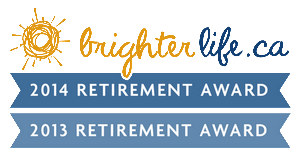The following was taken from an article written by Honor Whiteman and published in MNT weekly Newsletter and published May 17th
New research further emphasises the importance of physical activity, after finding that people who are highly active can knock years off their biological age.
Researchers say that running for 30 to 40 minutes over 5 days per week could reduce cellular ageing by 9 years. But we are not talking about a light workout we are talking about a more serious workout on a regular basis, according to one of the researchers who said, “If you want to see a real difference in slowing your biological ageing, it appears that a little exercise won't cut it. You have to work out regularly at high levels.”
A researcher from Brigham Young University in Provo, UT, found that running for 30 or 40 minutes every day for 5 days each week can reduce the shortening of telomeres and decrease cellular ageing by 9 years.
Telomeres are the protective caps at the ends of chromosomes, which are thread-like structures in cells that hold our DNA. They are often compared to the plastic tips at the end of shoelaces, as they stop the ends of chromosomes from fraying and sticking to other chromosomes.
Telomeres are a marker of biological age. As we get older, telomere length shortens. When telomeres become too short, they are no longer able to protect chromosomes, which can cause cells to stop functioning and die.
Poor lifestyle factors, such as lack of exercise, can also contribute to telomere shortening by causing oxidative stress, which is the inability of the body to offset the cell damage caused by free radicals.
The new study - conducted by Prof. Larry Tucker of the Department of Exercise Sciences at Brigham - demonstrates just how important physical activity is for protecting against cellular ageing.
The findings were recently published in the journal Preventative Medicine. For his study, Prof. Tucker analysed the data of 5,823 adults who were a part of the 1999-2002 National Health and Nutrition Examination Survey.
The researcher looked at the telomere length of each participant. In addition, he looked at subjects' participation in 62 physical activities over a 30-day period, using this information to calculate their physical activity levels.
Compared with participants who were sedentary, those who were highly active were found to have telomere lengths representing a biological age of 9 years less, and a biological age of 7 years less compared with those who were moderately active.
Thirty minutes of jogging daily for 5 days per week was deemed highly active for women, while 40 minutes of jogging every day for 5 days each week was considered highly active for men.
Prof. Tucker says that he was surprised to discover that the telomere length between sedentary participants and those who were moderately active were not significantly different. This indicates that in order to protect against cellular ageing, high levels of physical activity are best.
